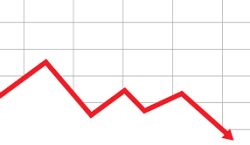

AN INCREASING number of South Africans have started to research their options on how to move money offshore, according to Jonty Leon, legal manager at financial emigration at Tax Consulting SA.
The company has also noted a large increase in individuals who are expatriating funds and investing these funds offshore.
“There are various speculative reasons as to why people are moving money abroad. Some are financially emigrating due to moving overseas. Other reasons include better investment opportunities abroad, the weakened rand and political instability,” says Leon.
“Many mentioned that discussions regarding land expropriation without compensation has led them to feel that their investments in South Africa are no longer secure.”
Leon points out that the exchange control system regulate the inward and outward flow of money in South Africa and it affects both individuals and companies.
There are two main ways of expatriating funds from South Africa, namely the single discretionary allowance and the foreign capital allowance.
The single discretionary allowance is for SA residents 18 years or older and with a valid SA identity document. This allowance is R1m per calendar year per individual.
The foreign capital allowance gives an SA resident of 18 years or older the opportunity to expatriate funds of up to R10 million per calendar year.
Prior approval is needed to expatriate funds under the foreign capital allowance.

If a person wants to move actual South African bank notes abroad, the limit when entering or leaving SA is R25 000 per individual. When travelling between countries in the Common Monetary Area — South Africa, Lesotho, Namibia and Swaziland — the amount is unlimited.
The exchange rate is another major determining factor as to when people take money out of South Africa.
“Moving money outside of South African when the rand is weak is like making a bad investment. Be sure to time the expatriation of your money according to the exchange rate,” says Leon.
“Compliance is another aspect of funds expatriation that needs to be carefully considered and adhered to. Those looking to expatriate funds must ensure they meet all the regulations related to the transaction.”
Something as seemingly menial as providing an incorrect statement in any declaration to the SARB can lead you to be found guilty of an offence in terms of exchange control regulations. If you are found guilty of such an offence, you could be fined up to R250 000 or up to five years in prison — or both. — Fin24
Sorry. No data so far.

